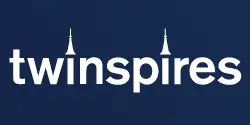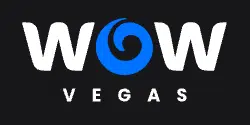New York Sports Betting
New York sports betting got underway in July 2019, with commercial and tribal casinos opening retail sportsbooks to take in-person wagers.
Lawmakers long struggled to reach a consensus on regulating online sports betting in New York, but they made a breakthrough in April 2021 by including legislation in the state budget.
The first New York sports betting sites launched in January 2022 after receiving the final approval of the Gaming Commission. Now, New York is home to nine legal online sportsbooks.
Bettors 21 and older can download New York online sports betting apps, register, and bet online from anywhere in state lines.
Legal New York Betting Sites
 Bet $5 Get $150 If It WinsFanDuel Promo Code: Not Needed
Gambling Problem? Call 1-800-GAMBLER or visit RG-Help.com. Call 1-888-789-7777 or visit ccpg.org/chat (CT). Hope is here. GamblingHelpLineMA.org or call (800) 327-5050 for 24/7 support (MA). Visit www.mdgamblinghelp.org (MD). Call 1-877-8HOPE-NY or text HOPENY (467369) (NY). 21+ (18+ D.C.) and present in select states (for KS, in affiliation with KS Star Casino). First online real money wager only. $5 first deposit required. Bonus issued as nonwithdrawable bonus bets which expire 7 days after receipt. Restrictions apply. See terms at sportsbook.fanduel.com.
Bet $5 Get $150 If It WinsFanDuel Promo Code: Not Needed
Gambling Problem? Call 1-800-GAMBLER or visit RG-Help.com. Call 1-888-789-7777 or visit ccpg.org/chat (CT). Hope is here. GamblingHelpLineMA.org or call (800) 327-5050 for 24/7 support (MA). Visit www.mdgamblinghelp.org (MD). Call 1-877-8HOPE-NY or text HOPENY (467369) (NY). 21+ (18+ D.C.) and present in select states (for KS, in affiliation with KS Star Casino). First online real money wager only. $5 first deposit required. Bonus issued as nonwithdrawable bonus bets which expire 7 days after receipt. Restrictions apply. See terms at sportsbook.fanduel.com.
 Daily Promotions
Gambling problem? Call 1-800-GAMBLER (available in the US). Call 877-8-HOPENY or text HOPENY (467369) (NY). Call 1-800-327-5050 (MA). 21+ only. Please gamble responsibly. Call 1-800-NEXT-STEP (AZ), 1-800-BETS-OFF (IA), 1-800- 981-0023 (PR). First bet offer for new customers only. Subject to eligibility requirements. Bonus bets are non-withdrawable. In partnership with Kansas Crossing Casino and Hotel. See BetMGM.com for terms. US $1500 promotional offer not available in New York, Nevada, Ontario, or Puerto Rico.
Daily Promotions
Gambling problem? Call 1-800-GAMBLER (available in the US). Call 877-8-HOPENY or text HOPENY (467369) (NY). Call 1-800-327-5050 (MA). 21+ only. Please gamble responsibly. Call 1-800-NEXT-STEP (AZ), 1-800-BETS-OFF (IA), 1-800- 981-0023 (PR). First bet offer for new customers only. Subject to eligibility requirements. Bonus bets are non-withdrawable. In partnership with Kansas Crossing Casino and Hotel. See BetMGM.com for terms. US $1500 promotional offer not available in New York, Nevada, Ontario, or Puerto Rico.
 Bet $10, Get $50
Must be 21+. GAMBLING PROBLEM? Call 1-800-GAMBLER
(CO/DC/IL/KS/KY/LA/MD/OH/MI/NC/NJ/PA/TN/VA/VT/WV/WY), (800)-327-5050 or http://gamblinghelplinema.org (MA), Call (877-8-HOPENY) or text HOPENY (467369) (NY), 1-800-NEXT-STEP or text NEXTSTEP to 53342 (AZ), (888) 789-7777 or http://ccpg.org (CT), or 1-800-BETS-OFF (IA), or 1-800-9-WITH-IT (IN), or www.mdgamblinghelp.org (MD), or morethanagame.nc.gov (NC), or 1800gambler.net (WV). $1,000 No Sweat Bets offer for customers in AZ, CO, CT, DC, IA, IL, IN, KS, KY, LA, MA, MD, MI, NC, NJ, OH, PA, TN, VT, VA, WV, or WY only. Must apply this promotion in your bet slip and place a $1+ cash wager with odds of -500 or longer each day for 10 straight days. Your 10 days begin the day you establish your account. Wager must settle as a loss to qualify for Bonus Bets. Bonus Bets will equal the amount of the losing wager(s) (up to $100 in Bonus Bets per day) and expire 7 days from issuance. This offer is not available in IL, NY, & NC. Terms apply- see Fanatics Sportsbook app.
Bet $10, Get $50
Must be 21+. GAMBLING PROBLEM? Call 1-800-GAMBLER
(CO/DC/IL/KS/KY/LA/MD/OH/MI/NC/NJ/PA/TN/VA/VT/WV/WY), (800)-327-5050 or http://gamblinghelplinema.org (MA), Call (877-8-HOPENY) or text HOPENY (467369) (NY), 1-800-NEXT-STEP or text NEXTSTEP to 53342 (AZ), (888) 789-7777 or http://ccpg.org (CT), or 1-800-BETS-OFF (IA), or 1-800-9-WITH-IT (IN), or www.mdgamblinghelp.org (MD), or morethanagame.nc.gov (NC), or 1800gambler.net (WV). $1,000 No Sweat Bets offer for customers in AZ, CO, CT, DC, IA, IL, IN, KS, KY, LA, MA, MD, MI, NC, NJ, OH, PA, TN, VT, VA, WV, or WY only. Must apply this promotion in your bet slip and place a $1+ cash wager with odds of -500 or longer each day for 10 straight days. Your 10 days begin the day you establish your account. Wager must settle as a loss to qualify for Bonus Bets. Bonus Bets will equal the amount of the losing wager(s) (up to $100 in Bonus Bets per day) and expire 7 days from issuance. This offer is not available in IL, NY, & NC. Terms apply- see Fanatics Sportsbook app.
21+ and physically present in NY. For help with a gambling problem call 1-877-8HOPE-NY or text HOPENY (467369).
New York Sports Betting Apps
After New York legalized online sports betting, the NYS Gaming Commission selected nine operators to receive licenses.
The first New York online sportsbooks launched in early 2022 and are now open to customers 21 or older:
- FanDuel Sportsbook
- BetMGM Sportsbook
- Caesars Sportsbook
- Fanatics Sportsbook
- BetRivers Sportsbook
- DraftKings Sportsbook
- Bally Bet
- ESPN Bet
- Resorts World Bet
New York Sports Betting Bonuses
Despite its high tax rate, New York is a competitive market with nine sports betting apps operating in what could easily become the nation’s largest sports betting market.
The best New York sports betting sites offer large welcome bonuses, frequent promotions, and value-added loyalty programs.
Additionally, the NYS Gaming Commission asked operators to submit their marketing and promotional plans during the selection process.
Each of the nation’s biggest operators confirmed they intend to aggressively market to attract new customers and draw existing bettors away from illegal offshore sportsbooks.
New York Sports Betting Locations
New York’s four upstate commercial casinos and seven tribal casinos operate retail sportsbooks.
New York City Sports Betting
Legal sports betting is available in New York City via licensed online sportsbooks.
Anyone living in New York City can get started by downloading any of the betting apps recommended on this page to create an account, make a deposit, and begin placing wagers.
For two years after the state legalized retail sports betting, New York City residents had to either drive to an upstate casino or cross into New Jersey to place online wagers.
New York City sportsbooks didn’t materialize due to prior legislation exclusively authorizing sports betting at upstate commercial casinos and tribal properties.
The legalization of online sports betting allows New Yorkers 21 or older, convenient access to legal sports betting apps.
For fans who want to get the in-person gameday experience, the closest retail sportsbooks are:
- FanDuel Sportsbook at Meadowlands in East Rutherford, NJ
- The sportsbook at Resorts World Catskills in Monticello
New York Sports Betting Law
New York legalized retail sportsbooks at casinos in 2019 without passing new legislation.
Voters approved a referendum in 2013 permitting New York’s four upstate commercial casinos to offer sports betting, pending a change in federal law.
The Supreme Court took care of that in 2018 with its landmark ruling against PASPA.
After the Supreme Court ruling, the Commission issued regulations in June 2019, and the first sportsbooks opened the following month.
Tribal casinos also gained the authority to open retail sportsbooks due to gaming compacts that allow them to offer the same types of gambling as commercial casinos.
Online sportsbooks came to New York through a budget bill approved in 2021 and signed into law by Governor Cuomo.
The NY online sports betting law is vaguely worded, but the key points follow:
- It directed the NY Gaming Commission to select two mobile sports betting platform providers after receiving bids from interested parties
- Each platform provider operates at least two standalone sportsbook apps
- The state expects to receive at least 50% of each platform’s revenue
- New York may approve additional platforms and skins if doing so is “in the best interests of the state”
Additional regulations (pg. 21) fill in some of the details, covering issues such as equipment standards, anti-money laundering (AML) rules, and financial record-keeping.
In short, New York sports betting law holds operators to high standards of conduct.
After New York legalized online sports betting, the Gaming Commission requested proposals from operators interested in acting as one of the state’s two authorized platform providers.
Several name-brand operators submitted standalone or joint bids, and the Gaming Commission selected two.
Each platform provider manages several skins, ultimately giving New York bettors their choice of nine mobile sportsbooks.
New York Daily Fantasy Sports
 50% up to $1000Underdog Fantasy Promo Code: BETUSA
18/21+, T&Cs apply. Concerned with your play? Call 1-800-GAMBLER or visit www.ncpgambling.org; AZ: 1-800-NEXT-STEP (1-800-639-8783) or text NEXT-STEP to 53342; NY: Call the 24/7 HOPE line at 1-877-8-HOPENY or Text HOPENY (467369) Learn more about Underdog Contests and how to identify highly experienced players at www.underdogfantasy.com/rules; Learn more about average results at www.underdogfantasy.com/average-results.
50% up to $1000Underdog Fantasy Promo Code: BETUSA
18/21+, T&Cs apply. Concerned with your play? Call 1-800-GAMBLER or visit www.ncpgambling.org; AZ: 1-800-NEXT-STEP (1-800-639-8783) or text NEXT-STEP to 53342; NY: Call the 24/7 HOPE line at 1-877-8-HOPENY or Text HOPENY (467369) Learn more about Underdog Contests and how to identify highly experienced players at www.underdogfantasy.com/rules; Learn more about average results at www.underdogfantasy.com/average-results.
New York legalized daily fantasy sports and introduced a regulatory framework for operators in 2016.
However, legal challenges to New York’s fantasy sports nearly railroaded the industry, but an appeals court decision issued in 2022 finally granted DFS operators legal certainty.
Today, New York is home to multiple daily fantasy sports sites regulated by the state gaming commission and bound by state law to treat customers fairly.
Sports fans can read more and see BettingUSA’s recommended New York fantasy sports sites below:
New York Horse Racing Betting
Horse racing betting is widespread and readily available across New York.
Fans can bet trackside at any of the state’s 11 race tracks, more than 150 off-track betting parlors, or online through horse racing betting sites that are authorized to accept wagers from New Yorkers:
New York Online Gambling
Online casinos and poker sites in New York are not yet legal, although Sweepstakes gambling sites offer a close alternative.
The resounding success of the New York online sports betting market has caught the attention of lawmakers. They are well aware of the revenue New York online casinos could generate for the state if legalized, regulated, and taxed.
Read more about the New York online gambling market here:
New York Online Poker
In January 2023, assemblyman Gary Pretlow introduced A1380 to legalize online poker in New York by defining it as a game of skill.
In addition, Pretlow’s bill would have tasked the New York State Gaming Commission with overseeing online poker sites and issuing additional consumer protection, licensing, and tax-related regulations.
The bill would have also allowed existing casinos and other qualified gaming entities to apply for licenses, established a $10 million licensing fee, and enacted a 15% tax on online poker revenue.
Pretlow has introduced versions of his online poker bill since 2013 without success.
However, New York lawmakers may be more amenable to considering an online poker bill now that they’ve legalized online sports betting.
New York Online Lottery

Players can buy New York Lottery tickets online via registered courier services. New York is one of the only states in the nation that explicitly permits lottery courier apps and requires them to register with the state before serving customers.
Read more:
Responsible Gambling In New York
New York law requires all sports betting and gambling operators to promote responsible gambling.
For example, New York’s online sports betting regulations require operators to:
- Prominently link to a responsible gambling page from their mobile apps and websites
- Maintain responsible gambling pages that describe each operator’s responsible gambling policy, information about the risks associated with gambling, the availability of self-imposed limits and voluntary exclusion, link to a responsible gambling page maintained by the NY Office of Addiction Services and Supports
- Maintain a problem gambling plan approved by the NYS Gaming Commission
- Have procedures for identifying and assisting users who display signs of problem gambling
- Have procedures for preventing minors and self-excluded individuals from betting on sports
- Comply with all other general responsible gambling regulations imposed on licensed casinos
Additional legislation approved in 2024 requires New York sports betting sites to ensure all advertisements include a link to a gambling hotline number, include information about the potential harmful effects of gambling, and information about how to self-exclude from gambling.
Bettors can visit this page to self-exclude from sports betting and all other forms of gambling available in New York for periods of one year, three years, five years, or a lifetime.
Anyone with questions or concerns about problem gambling in New York can call 1-877-8-HOPENY (467369) 24/7 or visit these websites for more information and resources:




